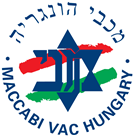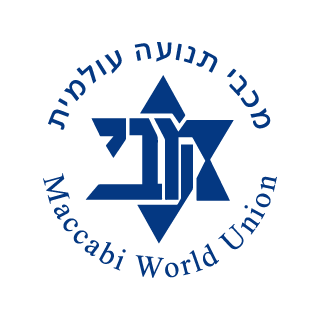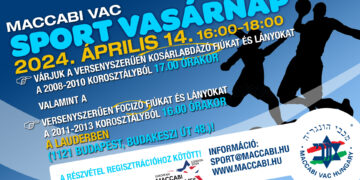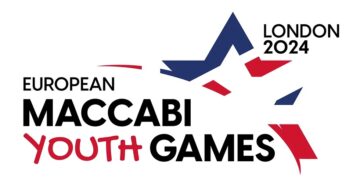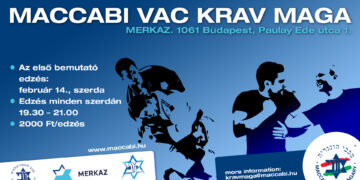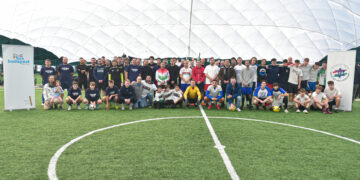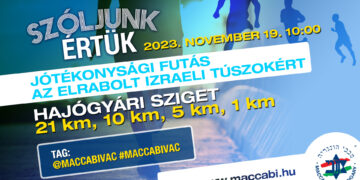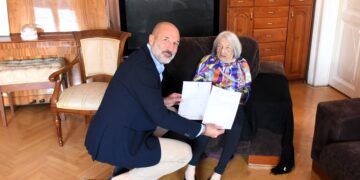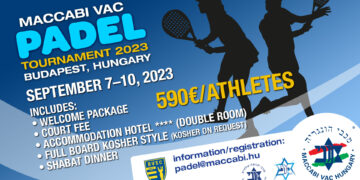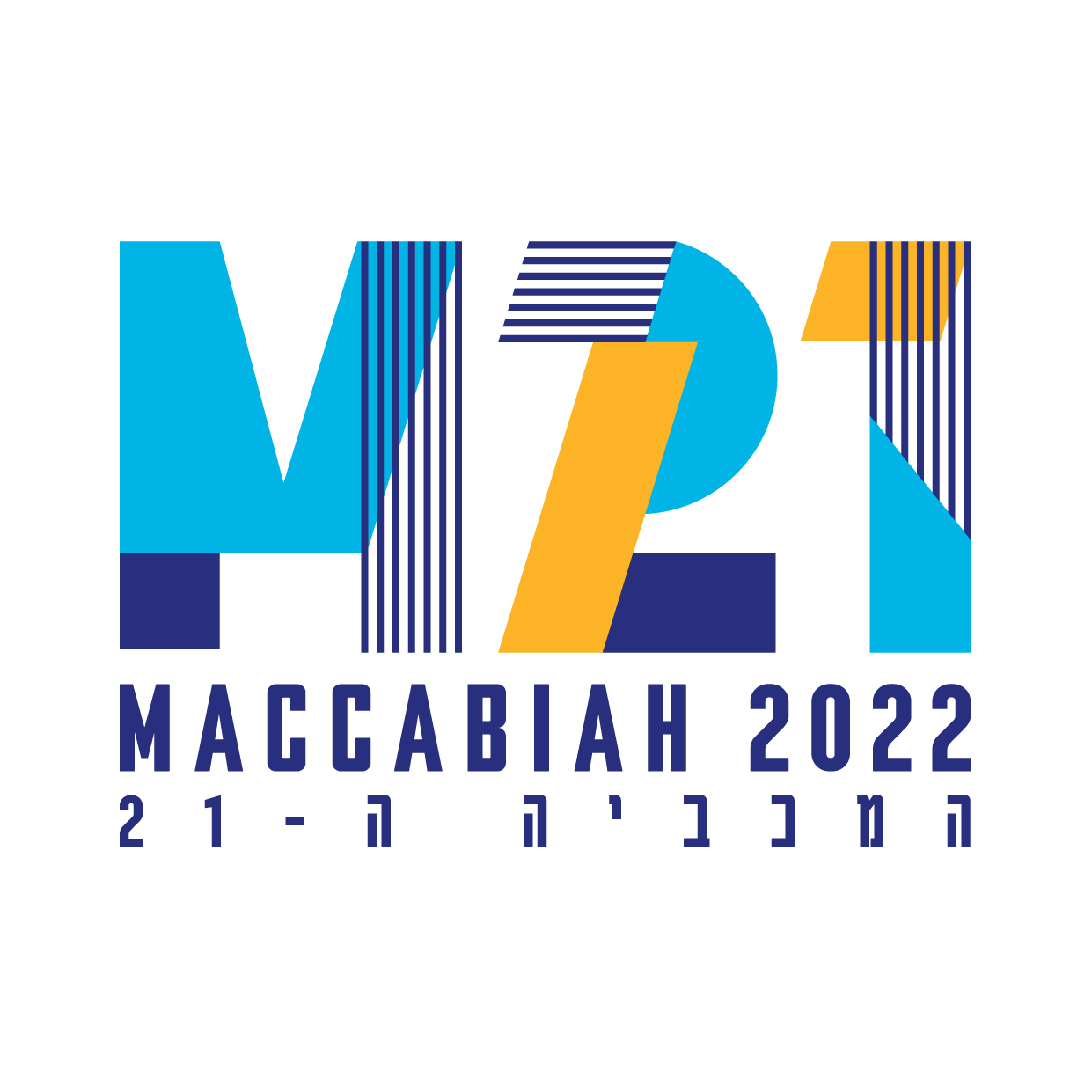
The Hungarian delegation closed the Maccabi World Games with thirty-three medals, including 6 gold, 8 silver and 19 bronze, in which they participated for the first time in 1993. This accumulation of medals means that the Hungarian team has its most successful Maccabiah performance to date!
Ninety years after the first Games in 1932, the 21st Maccabiah was held this year. The 90th anniversary was the focus of the current Games, and the museum’s new building, which was completely renovated in recent years, was dedicated to this incredible milestone! The Hungarian presence at the exhibition is outstanding, with countless relics and various materials, with interesting reading that evokes the past and inspires the present.
While there was no independent Israel in 1932, nearly 400 athletes from 18 countries took part in the event in Tel Aviv. This year, in 2022, 10,000 athletes from more than 60 countries were waiting for the competitions in Israel, which has existed for 74 years, in the shadow of COVID19, which was still a serious challenge for the organizers and delegations. But despite taking great care and safety measurements, there were cases of illness in almost every team – including the Hungarian team. Unfortunately, they were forced to withdraw or, in a luckier case, had to miss a few matches. This led to some disappointment from the players, but thankfully this did not significantly affect the atmosphere of the games as a whole.
A somber commemoration was held to remember the opening of the 1997 Games, when a small bridge had to be crossed for the participants to enter the stadium. The bridge could not withstand the significant number of athletes marching in celebration. The pedestrian bridge leading to Tel Aviv’s Ramat Gan Stadium collapsed, carrying members of the Australian Maccabiah team (then hundreds) plunging into the Yarkon River or clinging to the shattered pieces of the bridge. Four people lost their lives in the tragedy, several were hospitalized, even for many months; being treated not for their injuries, but for the infection caused by the fungus found in the Yarkon water.
This year, Australia sent 560 athletes, the third largest team, and the entire delegation attended the commemoration to honor the memory of the four victims.
As has become customary in recent times, the opening ceremony was held at the Teddy Stadium in Jerusalem, which, as usual, began with the entry of the teams. Israel was represented by 3,000 competitors, while the United States was represented by 1,500. Not long before the ceremony, the American team was able to take part in a private reception, where their president, Joe Biden, who was currently in Israel, hosted the members of the team. Biden is the first US president to attend a Maccabiah!
In addition to the mentioned two countries, the Ukrainians received a huge applause, and as is often the case, so did the nations marching with small numbers. We can proudly declare that all teams had their time in the sun, showered with applause and cheers.
The applause also goes out to the members of the Hungarian delegation! Almost all delegations congratulated the execution of the Hungarian uniform, especially the one worn at the opening, which had the signature of Ágnes Keleti, and which had a serious and special message for the Hungarian participants.
Of course, the team deserves recognition not only for this, but also because they won 33 medals, surpassing all previous achievements. Since several teams were able to stand on the podium, the number of medals was much higher; 51 of our athletes, which is more than half of the delegation, returned home with medals.
The first gold was won by Vivien Várnai, a duelist who was forced to quit elite sports, who also won a silver in the team.
In karate, Laura Sterck defended her 2017 championship during the form exercises, and came second in the fight, while she collected another 2 silver and 1 bronze in the various team competitions. The Beck family was able to return home happy, as the parents (Péter and Kata) and the children (Noémi and Simon) were also able to stand on the podium, and together in the team competition for each gender. The master of the team, Zsolt Büchler, who competed in the men’s and mixed teams, also finished with two bronze medals.
Among the athletes, Béla Kádár was able to stand on the top step of the podium after winning the 10 kilometer race of his age group. While András Lőwy (40-49) started alone on the same distance.
The junior water polo players also came first, even though the referees interfered badly in their match against the hosts during the group matches. But the guys fought back for this defeat at the right place and time, in the final.
Many interesting – rather, hair-raising – judgments upset the mood in the adult matches as well. The team had a great start to the semi-final against the Americans, and then the match became increasingly close. Then, in the final game, the judges made a controversial decision: there were only seven (7) seconds left in the game when they gave the Yankees a passable but opinionated man advantage, who shot it in and won. The Americans easy win against Israel was disheartening. The polo players, however, after the bronze 9 years ago and the silver 5 years ago, were not shy about their intention of going for the gold. The above-mentioned verdict deprived them of this opportunity, and in the end they collected the bronze, with a victory in the small final.
The swimmers also won many silver and bronze medals, but our golfer was also able to stand on the podium, as well as three Hungarians as members of the international ice hockey team.

